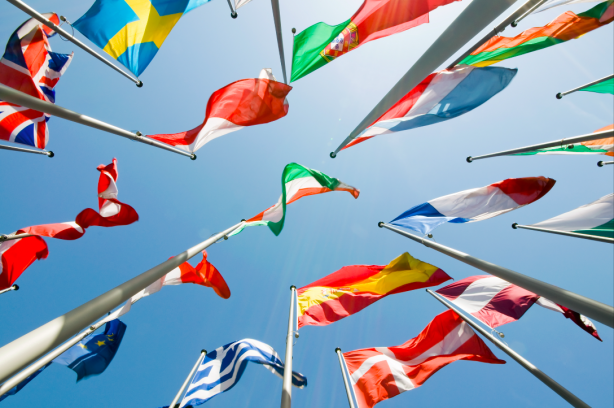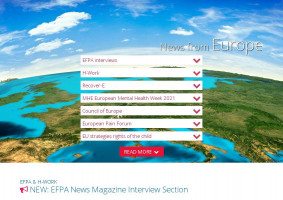READ MORE
NEW: EFPA News Magazine Interview Section
EFPA is one of the 14 partners of the EU funded project H-Work Multilevel interventions to promote mental health in SME’s and Public Workplaces.
With this interview section in the EFPA News Magazine, we aim to keep our member associations informed about the progress in the H-Work project and to provide insight into the role of the different partners of the consortium. These interviews with project partners will become a permanent section. We hope it makes for a pleasant and informative read.
In previous editions of the News Magazine EFPA has informed about the H-Work project through articles in the editions of July 2020 and February 2021. We also referenced the first H-Work newsletter in the edition of November 2020 and published an interview with H-Work Coordinator professor Luca Pietrantoni.
In this edition, Jolien Vandeneynde interviewed Josefina Peláez Zuberbühler, one of the lead researchers at UJI and Richard Wynne, representative and contributor for ENWHP within the project.
H-WORK interview:
Dr. Josefina Peláez Zuberbühler
By: Jolien Vandeneynde
1. What is the role of your organization in the H-Work Project?
Universitat Jaume I (UJI) from Spain, is the leading partner of the Work Package (WP) 2 ‘CREATE’. This WP is the preparatory phase that creates the theoretical basis for the development of the H-WORK (assessment, intervention, evaluation) Toolkits. The objective is to integrate the H-WORK consortium expertise related to best practices, digital technologies, and EU policies in mental health promotion in Small and Medium Enterprises (SMEs) and public organisations. UJI also contributes to WP3 ‘COLLECT’, in implementing psychosocial risks assessment and defining and tailoring interventions to be implemented in each Spanish intervention site. Our past experience on evidence based positive psychological interventions lets us take an important role within WP4 ‘INTERVENE’. We coordinate the intervention phase in the Spanish intervention sites, ensuring the implementation of the multi-level interventions. Last but not least, UJI contributes to creating a dissemination plan, elaborating scientific publications in collaboration with other research partners in the project, and attending conferences and networking events.
-
2. What is your role within the project?
My main role is to coordinate the UJI team’s work in order to achieve our contributions in the different Work Packages. Specifically, co-coordinating the tasks related to the development of the theoretical framework for WP2, coordinating the preparatory and intervention phases in the Spanish intervention sites, contributing to the design and implementation of interventions, keeping active communication with the Spanish intervention sites (3 SMEs and one Public Hospital), and with the rest of the H-WORK consortium partners, and finally, contributing to dissemination activities and scientific publications.3. Can you present to us your team?
Our team in UJI is composed by members of WANT Research Team - Psychosocial Prevention and Healthy Organizations. All of them are psychologists specialized in the development of pioneering tools for the assessment and intervention of psychosocial health at work. Dr. Marisa Salanova is the director of the WANT team, and full professor in the area of Social Psychology at UJI. Within the project, Marisa is the leading researcher, in charge of supervising the UJI team. The rest of the team consists of Dr. Susana Llorens and Dr. Isabel Martínez, both associated professors in the area of Social Psychology, Dr. Cristián Coo Calcagni, senior researcher in charge of facilitating the implementation of the interventions within the project, Mabel San Román, PhD student contributing to the different project activities, and myself, coordinating UJI Team tasks and contributing to the different project activities.
To read the full interview, fold out:
4. What is the impact of COVID on the work of your organization for the H-Work project?
With regards to the communication within the H-WORK partners, the impact has not been so disruptive, given that most of the meetings from the very beginning were meant to be online. Unfortunately, we have not been able to join together in conferences, networking and continue the Consortium meetings face to face. We are really looking forward to it. Hopefully, the European Association of Work and Organizational Psychology (EAWOP) congress in Glasgow next year will be a good opportunity to get together and present interesting theoretical and practical results achieved in the project so far. One important setback that we have faced in UJI due to the Covid-19 pandemic was the drop out of two of the Spanish test sites (a small company and a big public hospital) before starting the preparation phase because of the important economic, health or psycho-social consequences suffered. Fortunately, we have just reached an agreement with two other similar organizations, and we are really looking forward to starting Needs Analysis activities this semester.Considering that mental health promotion at work is even more important nowadays due to the current crisis, we believe that our work within the project is not being greatly affected. In order to achieve the expected outcomes, some of the activities have been restructured, for instance the assessment and intervention protocols have been modified with the inclusion of COVID-19 issues, and we are innovating with digital solutions for the development of the meetings and intervention activities.5. What has your team accomplished in the project so far?
Our first accomplishment, in collaboration with Università di Bologna partners, has been the Deliverable 2.1 H-WORK Theoretical Framework. This deliverable gathered an in-depth analysis of the consortium expertise related to best practices in the workplace mental health promotion, integrated into the Individual, Group, Leader, and Organizational (IGLO) model, in addition to state-of-the-art digital technologies and services on the market. The deliverable also provides indications on how to incorporate gender, cultural differences, stigma and co-morbidities that are relevant to the design and implementation of the H-WORK Toolkits, and a summary of relevant EU and national policies on mental health promotion at the workplace. During the preparation phase, the H-WORK assessment tool has been tested throughout the analysis of the needs on two of the Spanish intervention sites. This Needs Analysis consisted of individual interviews to senior and middle managers and focus groups to employees aiming at identifying actions and interventions needed to improve mental health and wellbeing in the workplace. A series of multilevel interventions have been proposed and agreed for their implementation on the different test sites, such as a Positive Leadership Development, Strengths-based Micro-Coaching, Positive Stress Management, Positive Social Climate and Appreciative Survey Feedback. All of them are based on previously validated Positive Psychological Interventions studies. Together with Università di Bologna, Technische Universität Braunschweig, Universiteit van Amsterdam, and QED group from Czech Republic, we have participated in webinars with the objective of training the trainers of the different research partners to be aligned in the implementation of interventions in the different countries' test sites.6. What are you currently working on and what are the next steps?
Related to the Theoretical Framework deliverable, we are currently developing a series of joint publication efforts together with different members of the consortium. Also, together with Università di Bologna and the contribution of other members of the consortium, the innovation in digital technologies and updates on European policies are being constantly monitored and updated throughout the project. This will result in the development of a second Deliverable (D2.2) meant to be finalized by the end of the project. As a second step within the preparation phase, baseline data collection through quantitative questionnaires is currently being implemented in two of the Spanish testbeds as a Pre-intervention assessment. Two of our test sites are currently starting the implementation phase that will last until December of this year (2021). At the same time, the preparation phase with needs analysis activities is about to start in two other Spanish test sites.
7. What are currently the main obstacles for your work and for the project in general?
The first obstacle we had to deal with was the outbreak of the pandemic crisis due to COVID-19. This has led to some delays on starting the preparation and implementation phases in the different test sites, in addition to modifications to the Assessment and Intervention protocols. Despite these setbacks, data collection and implementation of the different actions are being developed without major drawbacks. I will say that one of the main difficulties or challenges in our work is to engage the different stakeholders in the test sites and find ways to motivate employees to participate. Today, more than ever, it is crucial to create awareness about the need to mitigate the consequences of the current pandemic crisis, such as psychological distress, burnout, depression, anxiety, social stigma, and to help them build resources and skills to achieve psychological healthier work environments.
8. What are your expectations regarding the outcomes of the project for your country?
With the exploitation of the H-WORK assessment, intervention and evaluation toolkits we expect to contribute to the creation of psychosocial healthy workplaces. Public organizations and SMEs often have insufficient knowledge and resources to manage workers' mental health and well-being effectively. In order to address this difficulty, we seek to provide technical guidance on good practices and procedures to establish policies that can reduce occupational exposure, stress and risk reduction; and promote well-being of workers, especially in SMEs and public environments. To this end, identifying and providing best practice evidence based multilevel interventions within the project, would be crucial to orientate future actions for these types of organizations. At both the national and European levels, the main challenge of the project is to support organisations and their representatives in recognizing psychosocial risk factors, adopting measures and providing further innovative products and services to effectively promote mental health in the workplace, along with policy recommendations for employers, occupational health professionals and policy makers.
9. How do you think your organization and EFPA can collaborate in the H-Work Project?
We are honored to work with the leading European Federation of Psychologists Associations (EFPA) in the project. EFPA is one of the greatest contributors to Work Package 2, specifically in gathering relevant European policies and regulations related to mental health promotion in the workplace. Our next challenge within this Work Package is the monitoring of such European policies, together with the provision of recommendations and strategies for policy makers, tasks that will be possible because of the crucial alliance with the EFPA Standing Committee of Work & Organisational Psychology.H-WORK interview ENWHP:
Dr. Richard Wynne
By: Jolien Vandeneynde
1. What is the role of your organization in the H-Work Project?
Our role is mainly confined to dissemination of project progress and results through our network of members and newsletter recipients. We are also involved in making our expertise in relation to workplace health promotion and workplace health and safety available to the project. We have considerable policy experience in the area at national and EU level and we are also making this knowledge available to the project.-
2. What is your role within the project?
Managing the ENWHP contribution. Specifically:- Contributing expertise on policy in EU
- Contributing experience of workplace health promotion
I also take part in the various management and WP meetings of the project. In general, I try to bring to bear a knowledge of the realities of workplaces to the more theoretical work of the project.
3. Can you present us your team?Our team is a flexible one, drawn from our Board Members and from the secretariat of the ENWHP. Contributors to the project to date have included:
- Dr. Richard Wynne, Work Research Centre, Ireland
- Dr. Maria Dolores Sole, INSHT, Spain
- Prof. Giuseppe Masanotti, Department of Public Health, University of Perugia, Italy
Between us, we have many decades of experience in the area of workplace health promotion and workplace health and safety. Our backgrounds include Occupational Medicine and Organisational Psychology.
To read the full interview, fold out:
4. What is the impact of COVID on the work of your organization for the H-Work project?
Very little – we are a virtual organisation and apart from a commitment to attend project meetings we have seen little impact on our working methods. At Work Research Centre, where I am a Director, the impact has been largely confined to work in Ireland, where due to travel restrictions, it has proved impossible to make site visits etc. However, virtual meetings have largely replaced these and the impact on working methods has not been too severe.
5. What has your team accomplished in the project so far?
To date we have contributed expertise in relation to European policy on Workplace Mental Health Promotion and methods of implementing workplace health promotion. We have also been involved in disseminating project information through our network.
6. What are you currently working on and what are the next steps?
At present we are involved in updating our communications about the project to our network on our website, social media and newsletter. We will also be involved in reviewing Deliverables from the project, the next one being due over the course of the next month or two.7. What are your expectations regarding the outcomes of the project?
It is difficult to say at present as the project is still in development mode. I would hope that a set of proven and practical interventions to promote mental health at work will result, but there are many variables that can affect such an outcome over which the project has limited control. Already the Covid pandemic has resulted in delaying the implementation of field trials and it will continue to affect their implementation as the project progresses (e.g. homeworking populations, the need to have online support etc.). Beyond this major issue, there are the usual workplace factors to be considered, e.g. levels of support by workplace actors, levels of need in the workplace, identification of workplace champions, overcoming unforeseen obstacles and so on.
8. What are currently the main obstacles for your work in general and in the project?
I think the main obstacle is the difficulty of establishing working relationships with the project team. ENWHP are not central to the development or the implementation and evaluation work of the project and establishing working relationships with appropriate partners has proved difficult in the absence of face-to-face meetings. Hopefully, travel restrictions will be lifted in the near future and this barrier can be overcome.9. What is the biggest strength of your organization in advancing the project or helping other partners?
I think our strengths lie in practical experience of implementing workplace health initiatives, workplace mental health policy at national and EU level and in disseminating project information.
10. How do you think your organization and EFPA can collaborate in the H-Work Project for WP2 and WP7?
I think it may be possible to develop a joint strategy to these WPs as we occupy somewhat similar roles within the project. I would be interested to hear what EFPA thinks on this issue.
Comment from EFPA:
As mentioned EFPA and ENWHP have indeed similar roles within the project. EFPA is very interested in the opportunity and willing to collaborate with the ENWHP on providing effective communication and dissemination strategies for the project. We look forward to establishing and maintaining a good working relationship with the ENWHP and to creating a joint strategy.February 2021
H_WORK refers to new online tool that helps employees stay motivated during corona lockdown.
A new online training tool developed at the Eindhoven University of Technology TU/e helps workers to be happier, more motivated, and better performing in the home office.
The COVID-19 pandemic has changed our lives. Long work commutes, the office cubicle, and gossip by the coffee machine have been replaced by a home office where work is intertwined with our daily lives. This is a challenging situation for many and can lead to impaired well-being. To help workers develop skills needed to navigate this trying period, TU/e researcher Evangelia Demerouti has developed an online training program, which is available for all to use for free until July 2021. And initial tests show that workers who followed the training were happier, more motivated, and performed better in the home office.
If you want to access the tool and follow the 4-week training program, you can access it via this link
The course is in Dutch.(Source )
H-Work and EFPA
H-WORK consortium brings together broad multi-disciplinary expertise that unites the leading knowledge in the field of occupational health, methodology, policy development and communication, while at the same time provides additional expertise in advanced technologies and innovation. EFPA is partner in this EU project (2019-2023) which has received funding from the European Union’s Horizon 2020 research and innovation programme under grant agreement No 847386._w454_h156_1.png)
Read the recover-e newsletter here
Blogs & newsletters
Here is a list of interesting blogs to follow and newsletters to subscribe to:
Clinical Psychology in Europe
Health and Care Professions Council (UK)
European Commission Public Health-EU: e-newsletter
International Association of Medical Regulatory Authorities (IAMRA)
European Parliament IMCO (Internal Market Committee)
United Kingdom: Professional Standards Authority (UK)
European Social Network ESN
Ireland: CORU Regulating Health + Social Care Professionals (Ireland)
Healthcare Professionals Crossing Borders HPCB
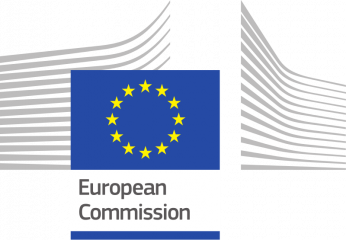
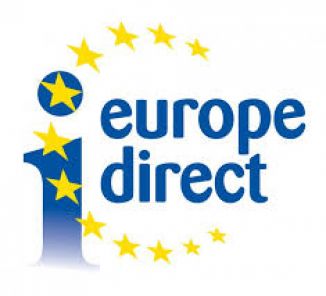
In person:
All over the European Union there are hundreds of Europe Direct information centres. You can find the address of the centre nearest you at: https://europa.eu/european-union/contact_enOn the phone or by email:
Europe Direct is a service that answers your questions about the European Union. You can contact this service:
by freephone: 00 800 6 7 8 9 10 11 (some operators may charge for these calls),
at the following standard number: +32 22999696 or
by email via: https://europa.eu/european-union/contact_en
EU publications
You can download or order free and priced EU publications here Multiple copies of free publications may be obtained by contacting Europe Direct or your local information centre

EU law and related documents
For access to legal information from the EU, including all EU law since 1952 in all the official language versions, go to EUR-Lex at:
http://eur-lex.europa.eu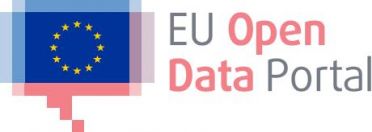
Open data from the EU
The EU Open Data Portal ( http://data.europa.eu/euodp/en)
provides access to datasets from the EU. Data can be downloaded and reused for free, for both commercial and non-commercial purposes.(1)(1)_w466_h178_1.png)
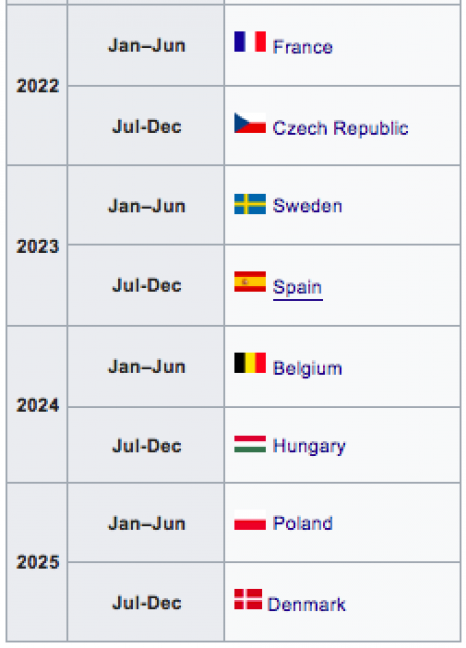
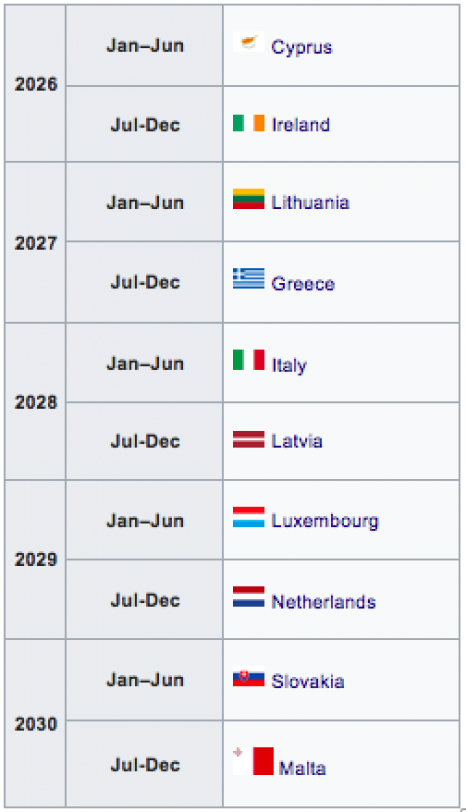
-
_w410_h506_1.jpg)

_w358_h496_1.jpg)
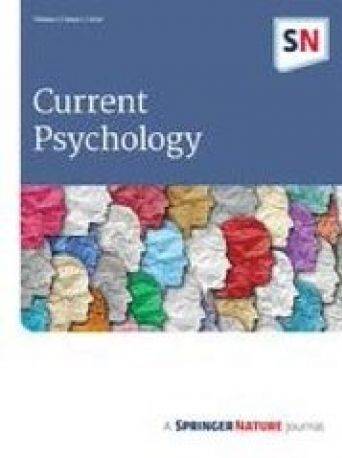
_w460_h160_1.png)
_w1462_h698_1.png)
